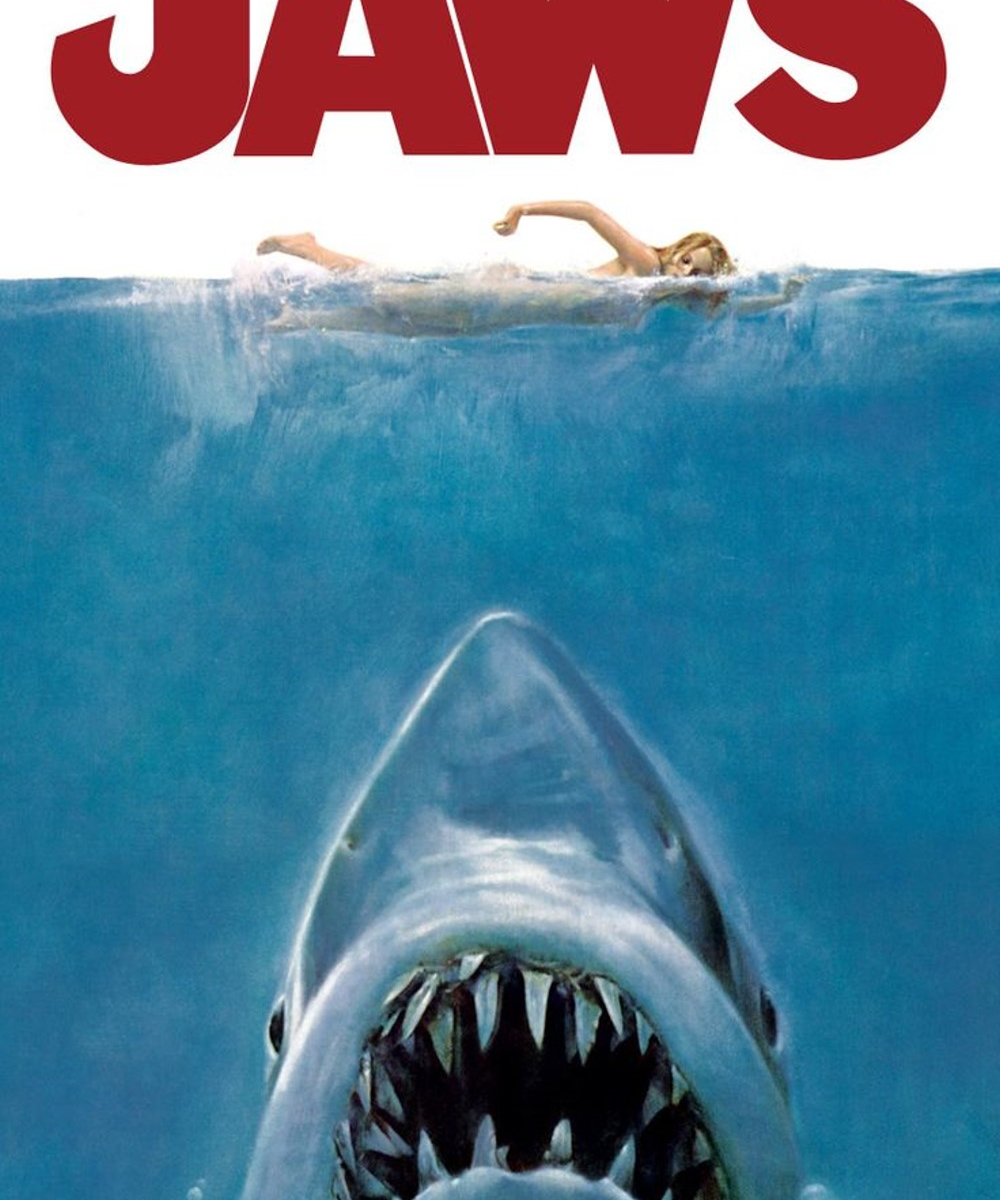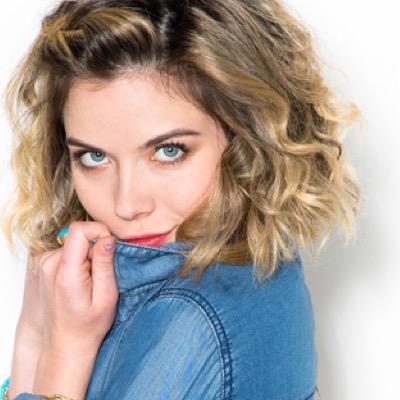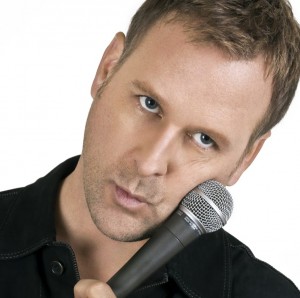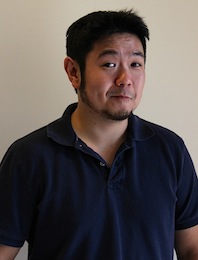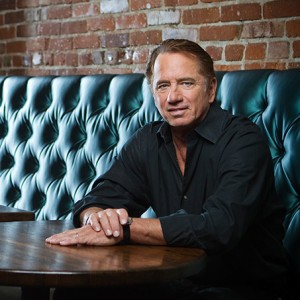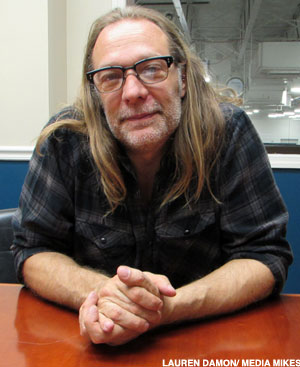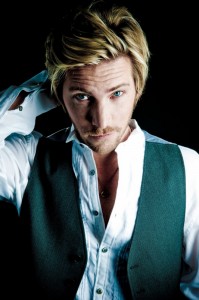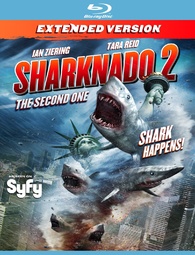Who knew that a little film like “Sharknado” would grab global attention when it aired on Syfy last summer. Well, it’s summer time ago and we have the premiere of “Sharknado 2: The Second One” on Wednesday, July 30 at 9:00 pm on Syfy. Enough said. We were lucky enough to get a chance to chat with the films stars, Ian Ziering, Tara Reid, Vivica A. Fox and director Anthony C. Ferrante to chat about the sequel and what we can expect.
When you went in to do the first Sharknado movie did you have any idea it was going to become this massive pop culture event?
Tara Reid: I mean we definitely didn’t know it was going to become what happened. It was definitely shocking for all of us. We had no clue signing on to the movie that this would be this phenomenon. So you know, it was great and kind of shocking experience. And it turned into something wonderful. Now to be a part of the franchise has been incredible. But yes, we definitely, we didn’t know – we got real lucky.
Anthony C. Ferrante: It’s hard with these things. You never – you know, you just try to make the best project possible and, you know, what happened on this thing – you know, it’s lightening in a bottle. We didn’t tell people to show up and make it a Twitter phenomenon. It just happened. And that’s kind of cool. You very rarely get those opportunities like that where people just want to embrace you just because you’re there. And that was kind of – it was kind of special. And helped because now we got to make a second movie and we got to make a bigger and better movie after that. So it’s fun.
How did you amp things up for the sequel?
ACF: I think the key with the second movie is we want them to – we wanted to kind of amp up what we did – we already did a lot in the first movie for the budget and the schedule. I mean that’s the – I think one of the reasons why it stood out just because we were pushing the budget and the schedule the maximum. And so we pretty much had the same kind of schedule in this one and we were trying to do twice as much as pushing as we did on the first one. So it – it’s a lot of heavy lifting to kind of make these things look fantastic and don’t have a – you know, we don’t have a $200 million budget to pull it off. But we have a lot of the imagination from our writers under Levin, from our cast and from our crew and producers and Syfy to let us play in this playground. One of the best things that Syfy said – there were actually two great things they said when we were developing. One, they started saying, well, we’re set it in summer but any weird weather when you’re shooting in February make it part of the story, which liberated us. So we didn’t have to go, we have to hide the snow. And that really adds to the look and feel of the movie. The second thing is – is that, they said we want you to shoot this movie in New York, shoot it in New York. We don’t want you to go to Canada. We don’t want you shoot in the back lots in LA. We want to shoot in New York. And I think that – that makes this movie look gargantuan and it feels authentic. And I think that’s what makes this one really special because we’re right there in the thick of New York.
TR: I think New York City has its own personality itself. So adding the personality of New York into this film really added a magical element into the film.
Ian/Tara, When you have a movie that is special like Sharknado was, sometimes actors will be reluctant to do a sequel. Did you guys have any second thoughts or were you on board from the get go?
Ian Ziering: I was on board right from the get go. You know, what’s so nice about Sharknado is that it really is not competing with itself and the bar that it set initially is not – you know, one of – you know, that’s unattainable. This was a low budget independent film, you know, a very campy nature.
So really the only way to screw it up would be to change it. And the brilliance of Sharknado 2 is the fact that it’s more of the same. It’s a similar formula but it’s a different experience, similar situation in a new environment. And if people liked one they’re going to love two.
TR: I agree with Ian exactly. He couldn’t have said it better. When I read the first one and went out to dinner that night with my friends, I told them I thought the script was hilarious. I was – yes, sharks are flying in Beverly Hills and maiming people and jumping out of pools. And my friends are laughing so hard. They’re like, are you kidding me? This is amazing, you’ll have to do this. So it’s so funny, you have to do it. So the next day I called my agent and I’m like, all right, let’s do it. And never knowing it would become the phenomenon it did but, you know, it worked. You know, people really enjoyed it. And then we learned from the first one and I think made it even better.
The film has a lot of humor in it. Do you sort of play it serious or take a laugh with it?
Vivica A. Fox: I definitely played my character serious and then I think, like, in the moments and what were fighting against and the elements, then the comedy ensued. So I took it very serious that a Sharknado was coming and we were there to stop it.
TR: Yes, I mean I think we all had to take, you know – even though the situation seems so crazy. But you had to play it serious because if you didn’t – if we were playing it laughing the whole time then the storyline wouldn’t even make sense. It’s by taking it serious in such an absurd crazy environment and that’s where the jokes come in, that’s where it gets funny. So I think you really do have to commit to your character, you know, and also know what you’re playing and being in that situation that you’re in and playing it serious then there comes the humor. So I think that’s really what a lot of people did.
ACF: And I think one of the other tricks with this movie and there’s a lot of horror films that will be just purposely campy and over the top but, I think the key actually to this whole franchise is having everybody playing it straight. I mean Ian has some very funny moments in the movie and lines but they’re character driven, they’re reactionary. The only people that are allowed to be funny are your comic relief characters, which are like, Judah Friedland. But even then they ground it. It’s not, ‘I’m making a joke.’ That was one of the things when we’d get new people coming in for cameos. A couple times they would come in and they’d be over the top when we were rehearsing. And we’d be like, no, no, no, it has to be played straight. You can be as funny as you want but you have to be in character and take the situation seriously. And I think that’s part of the charm. I mean Ian, you kind of agree, right, with…
IZ: Absolutely, even though the situations are absurd, you know, in the reality of the imaginary circumstances if you will, you know, you say and do things that – you know, are appropriate for the actions or the scenario. But as a spectator, as an observer, you realize how funny they are within that situation. But when you’re dealing with it, you know, you have to act naturally in imaginary circumstances. But as a spectator you realize that, you know, you get to enjoy the fun of it because you’re a witness. You’re not there experiencing it. So in that dichotomy, that’s where really the joy of the movie exists because you have to suspend this believe to buy into what you’re doing but yet you still have you foot in the real world so it gives you perspective of how absurd this movie really is.
ACF: I think a perfect example of what Ian did in the first movie when he chainsawed his way out of the shark there’s two ways that could have went. You could have went the Jim Carey route where it’s like, I’m laughing it up. Or you do what he did which was literally committing that he just was inside of a shark and that inherently makes it funnier because it’s so earnest that it’s so in the moment. I think that’s one of the charms about why people remember that sequence because – you know, Ian – it was the coldest day of the year in LA, which is hard to believe that we had a cold day. And a lot of – we dumped, like, 20 gallons of water on him. He’s freezing to death. He did. It was great. It was awesome.
What was the vibe on the set like the second time around?
TR: The vibe on the set was great. I mean we got lucky, everyone truly got along in the movie and had a great time with each other. And I think that shows.
VAF: The only element that was kind of crazy was just that it was really, really cold and there were sometimes you would be doing the scene and – boy, I just could not – getting out the dialog could be a little tough. But we would just go warm up and then go back at it again.
Did you all feel a responsibility to a fan base that didn’t exist the first time around?
VAF: Absolutely, yes. I mean when I heard about the success of the movie – 5,000 tweets a minute – I mean the first time, I was like, wow, okay, people are really, really loving this. And they’re going to be looking forward to the second one. So we wanted to deliver and make it bigger and better.
IZ: Yes, you know, in making Sharknado 2 there was a certain – there was a greater amount of ease about it because where I didn’t have the experience of what was possible, you know, after seeing what they were able to accomplish – what the visual effects artists were able to accomplish, what Anthony was able to do with the script, you know, going into Sharknado 2 I had a higher level of trust. So it was a bit more framing and enabled me to not have to worry about – gosh, am I going to look ridiculous doing this? I would do it no matter what but I had a greater amount of trust knowing that, you know, Anthony is completely capable, knowing that the visual effects artists are going to make all my actions substantiated by whatever shark it is that I’m being threatened by to make what initially was an action into a very realistic reaction. So I had a lot more fun because I wasn’t ill at ease.
Lastly a fun question; what’s your favorite shark kill out of both of the movies?
IZ: Yes, I like the shark kills most where I anchor myself to the ground and allow the sharks to literally pass through the blade. You know, that’s something that I did in the first movie where it was completely unrehearsed and Anthony has us running through a parking lot. He says, okay, I need you to jump around and there’s going to be sharks flying out of the sky so leap and jump and dodge sharks flying. I didn’t know what to expect but knowing that they would probably paint in the appropriate reaction there’s one moment where I just got on one knee and I raised the chainsaw into the air and they hit it out of the park. They had a shark fly through that. In the second one, working with a chainsaw that is 45 pounds, you know, swinging a chainsaw through the air is a little bit more challenging. So when I stood on top of the fire truck knowing that there was a shark flying at me I thought this would be another great opportunity. But this time I did it backwards. And Anthony says, what the hell are you doing? It looks so phallic. But when we painted the shark in it’s such a beautiful kill. It really is.
ACF: It is a fantastic moment. Yes, we called if the phallic shot. Wow, it was great. They did – that was one of the – that’s probably one of my favorite kills in this movie that – the animator, (Dennis) who did it, just – he originally did one pass on that where it was just kind of similar to the first movie and he got obsessed with the anatomy of a shark. And he found a half shark, like a plastic one that showed the full anatomy. And he used that as his inspiration so you get that really clean thing. And he just made a beautiful moment out of that.
